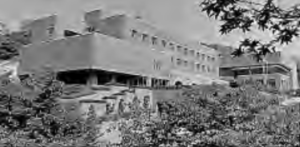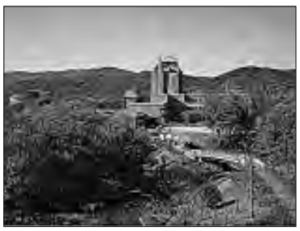
A keen interest in building women’s networks at local, national, and international levels continues to inspire feminist activity in both Japan and South Korea. Centers for Women’s Studies, activist movements, and feminist research programs are numerous and varied in both countries.
Education About Asia readers may easily gain information about much of the latest feminist activity and research through the national women’s centers in Japan and South Korea.
The Korean Women’s Development Institute (KWDI) in Seoul and the National Women’s Education Centre (NWEC), about one hour outside of Tokyo, offer free English-language newsletters and other publications, and on-line resources that provide useful research tools to both faculty and students. This article introduces these centers, highlights their publications in English, describes their websites, and includes contact information.
As government-funded yet largely autonomous institutions, KWDI and NWEC engage in a wide range of activities. All these activities target increasing women’s power over their personal lives and in public life. Since both centers operate on the principle that access to information of all kinds plays a key role in empowering women, much of the efforts of both focus on the gathering and dissemination of information relevant to women.
A key part of this project involves using technology as a tool in feminist consciousness-raising and organizing. Thus, both KWDI and NWEC are building comprehensive databases, working to increase women’s access to the Internet, and attempting to create a nationwide “electronic network” of women’s groups.
KWDI and NWEC also encourage feminist exchange of information, opinion, and research by sponsoring domestic and international conferences. Both centers welcome communication from scholars, students, and activists abroad, and consciously seek to promote international ties, especially through their English-language newsletters.
Korean Women’s Development Institute
(KWDI) (122-707)
1-363 Pulgwang-dong Eunpyong-gu, Seoul
Republic of Korea
Phone: 82-2-356-0070
Fax: 82-2-384-7163
Home page: http://kwominet.or.kr (in Korean)
Contact persons: Mr. ChulMo Park, Administrative Officer, Information Center (for newsletter requests at fax number above); Ms. Sun-Hye Kang, Program Specialist, Education Division III (for other queries, at fax: 82-2-384-7166).
For Internet access to KWDI’s English-language publications, “Korean Women Today” and Women’s Studies Forum, visit the database for Contemporary Women’s Issues at http://www.cwidb.com or search through OCLC First-Search, an electronic database provided by many academic institutions, for ContmpWomenIss.
KWDI issues two valuable and quite different English-language publications: Women’s Studies Forum, an annual scholarly publication, and “Korean Women Today,” an informative quarterly newsletter. Subscription requests should be sent by fax to Mr. Chul-Mo Park at the fax number above.
Because KWDI sends the newsletter free of charge, the Institute prefers to send this to libraries, government organizations, and researchers. This suggests that EAA readers request a subscription for their campus library rather than asking for numerous individual copies.
Although the KWDI web-site is only available in Korean at this time, an English-language page is planned for the near future. EAA readers may access the English-language publications of KWDI, however, by visiting the commercial database for “Contemporary Women’s Issues” at the Internet address provided earlier in this article.
Women’s Studies Forum contains scholarly articles contributed by KWDI research teams and scholars. Articles in one recent issue (Vol. 13, 1997) point to the diversity of feminist research being conducted in South Korea. Studies highlighted in this issue, for example, include work on women in politics, the education of women prisoners, gender discrimination in the mass media, and a comparative study of traditional fairy tales. At the end of each issue, the reader will find the tables of contents of previous issues, dating back to the journal’s inception in 1985, and revealing an especially rich literature on issues central to Korean women’s labor participation.
“Korean Women Today,” a most readable and well-organized newsletter, provides an excellent guide to the issues and activities that comprise feminist activism in South Korea today. Each issue reports on KWDI projects, summarizes findings of KWDI-sponsored gender studies, and describes feminist academic and political work throughout the country. Editorial comments by KWDI leaders and contributed essays explore topics such as equality in the workplace and women’s access to information, bringing perspective and context to the shorter reports throughout the newsletter.
Using this format, “Korean Women Today” succinctly presents the scope of KWDI activities and concerns. Stressing the connection between these concerns and government action, the newsletter clarifies the policies under debate or in the midst of implementation by government ministries, concisely outlining, and often critiquing, the main points of each. The Summer 1998 issue, for example, carries a report on the “Presidential Commission on Women’s Affairs and Women’s policies,” considering how the new government should aid women.

Moreover, the newsletter informs readers of domestic and international networks of women’s groups, explaining how KWDI has worked to increase the participation of women all over the country in this kind of exchange. Recent issues, for example, discuss the success of feminist campaigns to elect women to public office, the work against domestic violence that centers around the Korean Women’s Hotline, and meetings by several women’s groups in Seoul and Pusan to promote equal employment opportunities for women.
National Women’s Education Centre (NWEC)
728 Sugaya, Ranzan-machi, Hiki-gun
Saitama 355-0292, Japan Phone: 81-493-62-6711
Fax: 81-493-62-6721
E-mail: webmaster@nwec.go.jp
Home page: http://www.nwec.go.jp
CONTACT PERSON:
Ms. Tokiwa Iwamura
International Exchange Unit
Information and International Exchange Division
English-language readers interested in gender studies will find the NWEC Newsletter a useful way to locate information on some of the latest research in Japan. Fortunately, this newsletter can be accessed by visiting the NWEC homepage, a website that not only gives information about NWEC but has several English-language links to major women’s centers in Japan such as Wings Kyoto, the Dawn Center in √saka, and the Aichi Center. Visiting these sites provides, in turn, links to women’s organizations of all sizes, though many of these pages tend to be in Japanese only. While NWEC also publishes English-language proceedings of its conferences and a wide range of Japaneselanguage pamphlets and reports, the NWEC Newsletter and the NWEC homepage offer the best starting points for gaining current information on women in Japan, making them especially quick and useful references for students to use in their term research projects.
The newsletter reports NWEC’s many activities, and in each issue, introduces a different Japanese women’s organization such as the YWCA of Japan or other women’s centers such as those in Nagoya and Adachi. The newsletter also includes brief essays about Japanese women such as “Changes in Women’s Awareness of and Participation in Politics,” “Teaching Methods and Course Contents in Women’s Studies,” “The Childcare Leave Law,” and “1995 Status of Women as Seen in Statistics.” The back page of the newsletter provides short reviews of new English-language publications on Japanese women.
The publication of NWEC Newsletter is only a small part of the enormous energies NWEC directs toward the collecting, cataloguing and dissemination of information about women. The Information Centre for Women’s Education at NWEC houses an impressive library of books, journals, government publications, newspapers and videotapes related to women. Though most are in Japanese, quite a few English-language and other Western-language materials on gender are also catalogued here. The Information Centre also operates a large database devoted to information on women that can be accessed nationwide in Japan through WINET (Women’s Information Network System). The Information Centre uses this database to provide a reference service, answering the inquiries for information that come from telephone, letter, and visitors to NWEC.
Lastly, EAA readers who wish to do gender-related research in Japan should be aware that they can apply to stay at the spacious hotel-like accommodations offered by NWEC. At 1,400 yen per night, room rates are well below hotel prices. Readers wishing to use these facilities should contact NWEC well in advance of their planned stay, the official requirement being “six months to ten days” before the beginning of the intended stay.
KWDI and NWEC offer ways for those who teach about Japan and South Korea to introduce feminist concerns and activities in these countries to our classrooms. KWDI and NWEC are making every effort to ensure that the information they gather is easily accessible, indisputably current, and highly relevant to feminist work domestically and internationally. Both centers encourage the use of their resources and welcome suggestions for enhanced international exchange.

